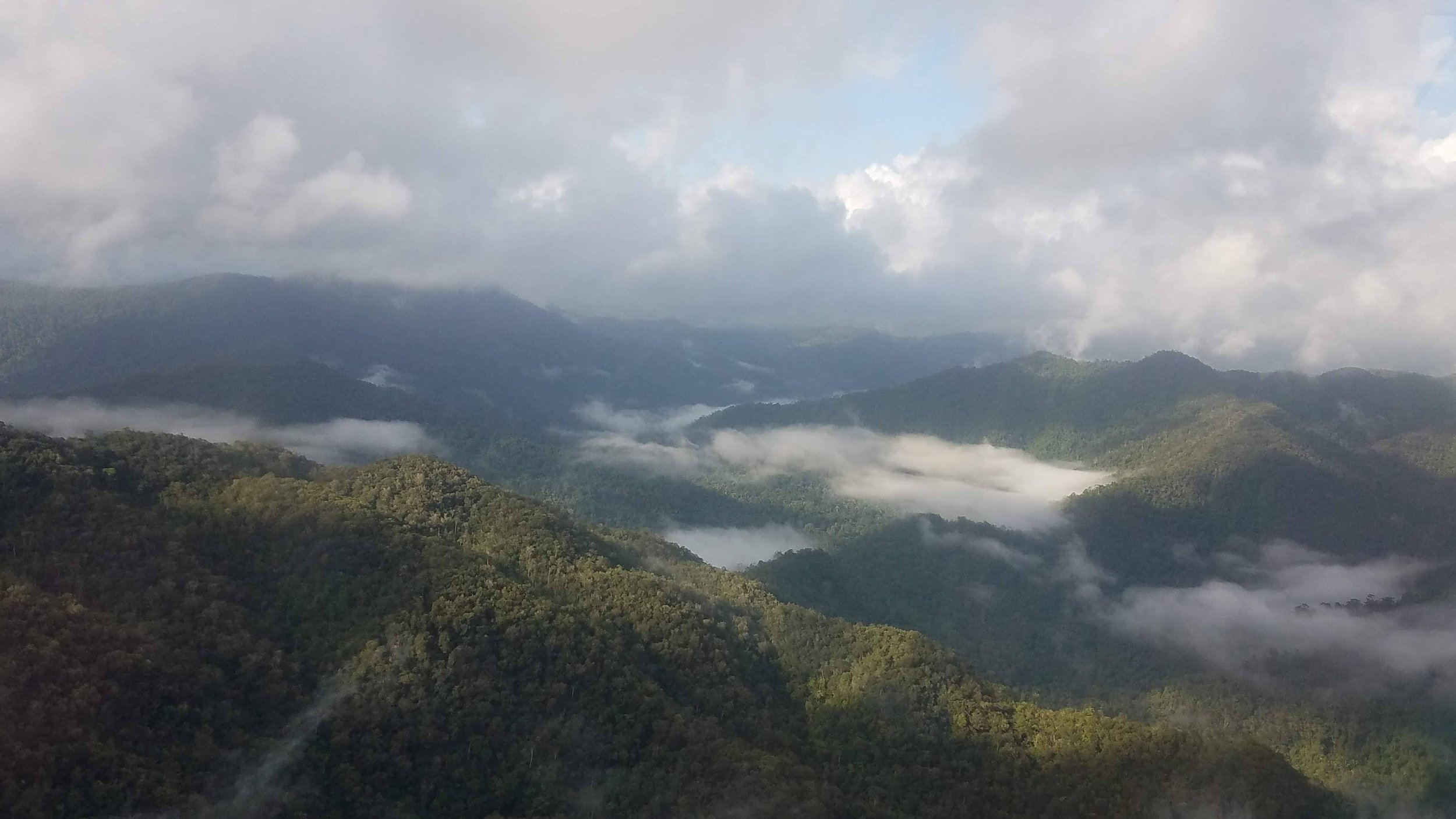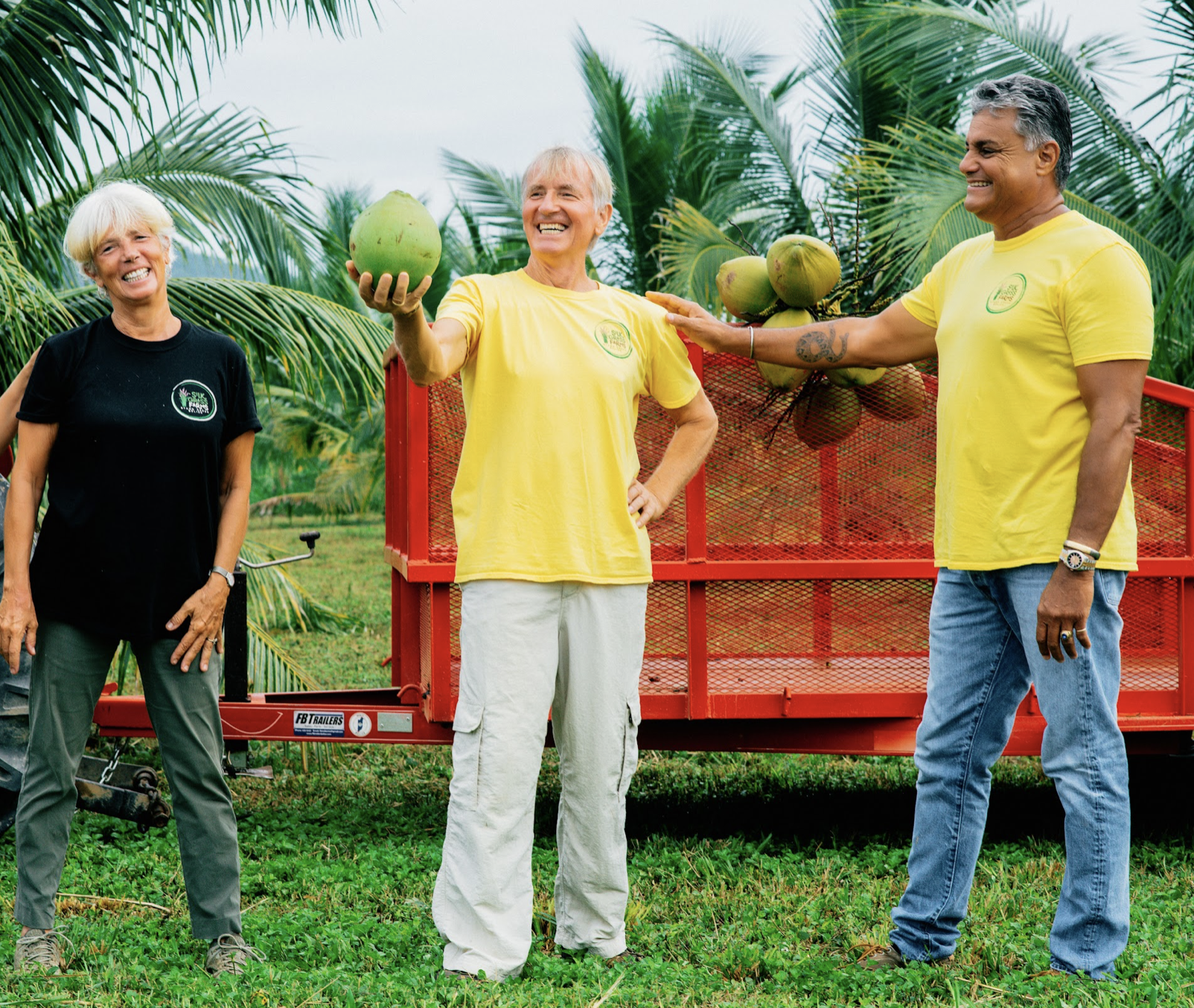
Building a Sustainable Farm at the Intersection of Industry and Conservation
Explore how Silk Grass Farms is helping to develop a circular economy through its thriving agribusiness in southern Belize.
Take, make, throw away — the repetition of a linear economy is no longer viable. We are using the equivalent of 1.6 earths to maintain our current way of life, outpacing the planet’s ability to keep up with human enterprise.
We know where the straight line of business-as-usual leads: environmental harm, unmitigated waste, and one-way thinking that does not consider the people and communities that sustain the system. But another way is possible, and Silk Grass Farms, a 9,000-acre agribusiness in southern Belize, is among those turning toward something better.
Silk Grass Farms is developing circular agricultural and economic practices to nourish natural resources instead of deplete them, operate with sustainable processes instead of harmful ones, and make use of byproducts instead of throwing them away.
Mandy Cabot, one of the co-founders of Silk Grass Farms, says circularity is an important consideration in all management decisions. In contrast with conventional extractive agricultural practices in the region, she says circular practices are intrinsic to the system at Silk Grass Farms, which is designed to return value to the environment and people of Belize.
“Central American agriculture has traditionally been intensely extractive, depleting soils, destroying habitat and exploiting workers for short-term financial gain, usually for the benefit of third parties in wealthy countries,” Mandy says. “Our philosophies and practices are built on an entirely different model.”
Silk Grass Farms’ philosophies and practices are designed to return value to the soil by processing waste products into soil amendments; maximize the value of the farms’ enterprise to local people and communities; and dedicate the farms’ profits to the protection of wildlife habitat and the surrounding rich natural environment.
Silk Grass Farms Founders Mandy Cabot, Peter Kjellerup, and Hanry Canton.
A Restorative Philosophy
Silk Grass Farms was founded on the desire to do better for the environment and people of Belize. The idea for the farm goes back to 2018 when Mandy and fellow co-founder Peter Kjellerup got a call from an acquaintance who said there was an opportunity “they had to see to believe.”
Mandy and Peter — after spending nearly three decades leading the world-renowned Dansko footwear company, a social enterprise the couple founded in 1990 — had begun spending time in Belize and had fallen in love with the country’s vibrant landscapes, culture and people.
Their acquaintance took Mandy and Peter to visit a neglected farm located just west of the village of Silk Grass. Decades before, 3,000 acres of the sprawling property had been cleared for citrus and cattle, and later planted with coconuts. After 40 years of conventional agriculture, the land was eroded, the soil depleted and the citrus groves dead. All but the coconut groves had been largely abandoned. The property also included 24,700 acres of first-growth rainforest — a biodiverse wildlife corridor critical to the regional ecosystem, abutting both the Cockscomb Basin Jaguar Preserve and Bocawina Mayflower National Park.
Upon seeing the farm and rainforest, Mandy and Peter envisioned a way they could give back to the country they had fallen in love with, taking care of the land while providing quality jobs that benefited the people and economy of Belize. To revive the farm, they knew there could be no return to the methods that had harmed the land in the first place. It would take a new way of doing business, something other than the linear economic system. They also knew they wanted the farm and preserve to be deeply beneficial to the Belizean people and economy, so they enlisted a third partner, co-founder Henry Canton, former statesman and long-time managing director of one of Belize’s largest agri-processing companies, Citrus Products of Belize, Ltd.
Later, Silk Grass Farms acquired another 6,000 acres of nearby agricultural land and built a 130,000 square-foot food-processing facility to maximize the value of produce from the farms.
A field of pineapples growing at Silk Grass Farms.
The Problem With a Linear Economy
A linear economy relies on a model that takes, makes, consumes, and then throws away: Extracting natural resources, making products that are generally not used to their full potential, and then disposing of them as waste. The model is not only unsustainable given the demand on earth’s resources but compounds harm to the environment by driving climate change and biodiversity loss.
The United Nations’ International Resource Panel concluded that the extraction and processing of materials, fuels and food contribute half of total global greenhouse gas emissions and over 90% of biodiversity loss and water stress. Food systems generate one-third of all greenhouse gas emissions and are responsible for up to 80% of biodiversity loss.
Silk Grass Farms’ co-founders saw for themselves what conventional farming practices had done to the land and understood the larger environmental impacts of farming and production. They committed to doing things differently.
A Circular Economy in Action at Silk Grass Farms
Investing profits into the wildlife preserve, using renewable energy, and repurposing “waste” materials such as coconut husks and orange peels are among the circular practices Silk Grass Farms is developing. Mandy says the beneficiaries of their efforts are clear.
“Most fundamentally, we have invested our capital specifically for the benefit of the people and the natural environment of Belize,” Mandy says. “We do not intend for that capital to be returned to us. We have designed our enterprise to create long-term support for local communities, local people and the natural environment.”
The farms and factory provide a platform to test these circular interventions to see which have the best environmental and social return and use that knowledge to strengthen the system.
Key circulatory practices at Silk Grass Farms:
Silk Grass Wildlife Preserve: Profits from Silk Grass Farms are invested into the 24,700-acre preserve of first-growth rainforest.
Renewable energy: The vast majority of energy is supplied from renewable sources such as Silk Grass Farms’ own 2-megawatt solar array and hydropower from the Belizean power grid.
Waste management: Agricultural wastes, such as coconut husks and citrus peels, will be processed into biochar soil amendments, returning carbon and natural fertility to the soils.
Cover crops: Planting fallow fields with cover crops, native grasses and incorporating organic matter into the soil retain moisture, fix nitrogen, prevent erosion, and shield the land from the harsh effects of sun and wind exposure.
No-till and low-till farming: Most of Silk Grass Farms’ crops are perennial, naturally grown without tilling, which disturbs soil biodiversity and releases carbon in the form of harmful greenhouse gasses. Low-till or no-till methods are used where annual crops, such as gingers and melons, are grown.
Underlying all of these circular practices are the social components of Silk Grass Farms’ enterprises. Silk Grass Farms pays living wages, and employees and their families are provided quality housing, healthcare, professional development opportunities, and childcare/education including free enrollment for employees’ children at the onsite Sandy Creek Academy. On a wider scale, Belize gains quality agricultural products that contribute to the country’s overall economy.
Silk Grass Farms’ 130,000-square-foot, state-of-the-art food processing facility.
Part of a Broader Change
Henry sees Silk Grass Farms and its food processing facility as a way to propel Belize’s agricultural and economic infrastructure and spur broader change to benefit the entire nation.
As a member of the Belizean government’s Economic Recovery Advisory Team and former Minister of Works, Henry says Silk Grass Farms offers other Central American companies a replicable model for regenerative agriculture. He understands the resistance to making systemic changes and sees the farm and its processing facility as a tool to make that shift.
“There comes a time when you have to realize that expecting different results from doing the same thing over and over doesn’t work,” Henry says. “In some ways, I am a politician again, working with people and bringing out the best in them, making them happy and getting them to the right place.”
Other companies can benefit from the investments and experiments at Silk Grass Farms,which is constantly testing what practices have the most meaningful environmental impact. Mandy says while their “always learning” mindset means that processes may change and improve over time, the mission remains steadfast.
“We attempt to conduct all our operations in ways that are nurturing and respectful of the animals, plants and people in our natural community,” Mandy says. “Practices and technologies will evolve, of course, but we have codified our values and priorities to maximize those benefits in perpetuity.”
We know where the linear economy leads us — to depletion of natural resources, pollution and warming of the environment, and unmitigated waste. Redirecting that course will take enterprises such as Silk Grass Farms, where the work is being done to develop circular practices, assess results and maximize the environmental return.





